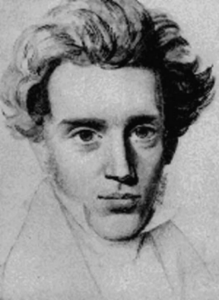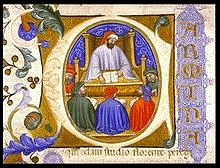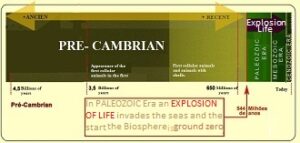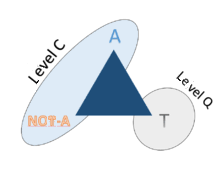
Arquivo para a ‘Information Science’ Categoria
The cold war is heating up
It seems like a paradox, but it is not, as the fact is that Europe and the entire northern hemisphere are heading towards autumn and then winter and in the middle of the cold the limits of ideological polarization seem to go beyond, new weapons, narratives of victories on battlefields, etc.
that Europe and the entire northern hemisphere are heading towards autumn and then winter and in the middle of the cold the limits of ideological polarization seem to go beyond, new weapons, narratives of victories on battlefields, etc.
Not even the tragedy in Morocco (photo), despite the condolences, seems to awaken a greater feeling of solidarity among the people, sub-Saharan Africa itself is heating up with coups and new military dictatorships.
The expansion of the Brics economic bloc also strengthens this polarization, despite the G20 meeting, a more diverse bloc, the possible creation of a new currency and new geopolitics point to a conflict that has already resulted in coups and authoritarian regimes, it does not mean that this diversification of currencies and new economic and political forces should not exist, but they should favor the diplomatic field and the establishment of peace.
On the front of the most declared battle, Russia announces an imposing weapon, not by chance called Satan II, capable of transporting several missiles at the same time without bothering with demonic names, on the front of the war a general called Armageddon, Sergey Surovikin, was sent. , who worked in Syria and against demonstrations in Russia, is now at the front.
On the side of Ukraine, whose counteroffensive is slower than expected, new weapons with weakened uranium have been received from the USA, while it trains pilots of its allies’ new fighters, a more aggressive change of tactics should take place before winter.
There is a weakened peace front, the president of Turkey tried to reach a new agreement to release the grain leaving Ukraine through the Black Sea, but apparently without success and a large grain producer in Ukraine died with his family when a missile hit his house in Odessa, Olesky Vadatursky.
Propaganda of deeds in war are also growing on the Web, peace seems distant and the spirits and voices of balance and common sense seem suffocated, there is always hope and peace.
Language, truth and error
The most common is to understand truth as the  logical tautology that derives from the conception of scientific empiricism and mathematical syllogism,
logical tautology that derives from the conception of scientific empiricism and mathematical syllogism,
Modern philosophy has developed several conceptions of truth, currently seeking the adequacy of truth to ideological systems that came from Hegelianism and a conception of History, on these mistakes is the elaboration of Hans-Georg Gadamer, which in turn comes from the conception of truth as Heidegger’s Being.
From syllogism and logicism come idealist concepts of judgment and positivist law.
Truth is for Descartes: “Never accept anything as true that one does not know evidently as such” (Descartes, Discourse on Method), is thus the opposite of falsehood, very close to formal truth.
The utilitarian pragmatism of Stuart Mill is the opposite extreme of this (is ilogic), and is close to the conception of Hegel and Nietzsche, it is the relativist truth that dominates many current discourses.
Nietsche also remakes the Hegelian concept of historical truth for the concept of existence, although the positive concept seems simple to be refuted, the difficulty is to establish what is true and real, which in reality would be the same thing, but what is real? Often this adjustment is made ideologically, thus the narratives arise.
It is because of this difficulty that the true conjugate with morality arises, it makes sense in the context of moral realism. For example, “Oppression and exploitation are malevolent” is a moral truth within a humanist morality, and “Unholiness is sinful” is a moral truth within a religious morality, and this conjugation is resolved in relation to Being and language, and one can withdraw the veil, the concealment through a-letheia, the unveiling.
The Western conception of truth, so difficult to have a single definition, can be combined in the Western case with three roots, the Greek “aletheia” (a- no, occult lethe), which comes from what comes from the definition of what being is: “language is the house of Being” (Heidegger), Veritas, the Latin concept conjugated between logic/language (true and false) and Emunah (the ethical-moral concept) truth/fidelity and its negation infidelity, Augustine of Hippo: “ in the interior of every being dwells the truth”.
Another critique of Hegel
We have already outlined here several criticisms of Hegelianism, with its vices of German idealism, which in our view also affects the so-called Young Hegelians like Marx, but there is another possible rereading that is that of Soren Kieerkegaard (1813-1855) who is more contemporary with Marx and perhaps for this reason little read, since the great philosophical clashes took place in the German idealism of this period.
Hegelianism, with its vices of German idealism, which in our view also affects the so-called Young Hegelians like Marx, but there is another possible rereading that is that of Soren Kieerkegaard (1813-1855) who is more contemporary with Marx and perhaps for this reason little read, since the great philosophical clashes took place in the German idealism of this period.
However, a Hegelian reading of Kierkegaard is possible and who called my attention to this is a Brazilian “millennium” doctor, Natália Mendes, who, in addition to writing an award-winning doctoral thesis of the author, speaks with ease and propriety of the philosopher.
First, it is important that he writes and studies Greek metaphysics, and the author draws attention to the issue of being the “father of existentialism”, labels that hinder the study and perception of the great problems that the philosophers brought.
The author sees Kierkegaard’s depth in three fundamental axes: the ontological, the epistemic and the psychological, without denying and realizing the theological origin of some of his concerns, she clarifies the theme of anguish, which must be understood as “philosophical anguish” that is having the right questions and the right answers to them.
Here I explore a little-explored and non-secondary angle that is post-positivism, and post-philosophical logicism, perhaps one of Kierkegaard’s great anxieties about theology.
Before proceeding, I highlight a phrase of the philosopher about prayer: “The function of prayer is not to influence God, but especially to change the nature of the one who prays”, seems profound to me.
Returning to Kierkegaard’s logic, which I believe is appropriate for our millennium, in addition to not considering himself a philosopher, which would mean undergoing severe criticism of authors he criticized, he builds his own perspective and does not abandon literature, psychology and theology in it.
In order not to make a treatise on his truth, I quote two of his quotes: “There is no true truth that is not subjective, this is appropriate” and another: “There are two ways to be deceived. One is to believe what is not true; the other is to refuse to believe what is true.”
Kierkegaard, S. (1986). Textos selecionados. Seleção e tradução por Ernani Reichmann. Brazil, Curitiba: Editora Universidade Federal do Pará.
Religion, philosophy and humanism
Neither is he who simply proclaims a faith without knowing it, nor is he who follows a series of precepts without understanding the fundamentals. In Christianity what is Love, the philosopher Hannah Arendt, for example, studied as her doctorate “Love in Saint Augustine” while Edith Stein discovers from philosophy and Saint Teresa of Ávila a religious path and became a nun and martyr (died at Auschwitz).
knowing it, nor is he who follows a series of precepts without understanding the fundamentals. In Christianity what is Love, the philosopher Hannah Arendt, for example, studied as her doctorate “Love in Saint Augustine” while Edith Stein discovers from philosophy and Saint Teresa of Ávila a religious path and became a nun and martyr (died at Auschwitz).
There is much apology for superstitions and beliefs in the religious environment, but they were not unknown to Jesus, the question of the Sabbath is famous, in which Jesus asks if it is fair to save someone from an illness on Saturday (Matthew 12:10), he calls the Pharisees “whitewashed tombs” (1Jn,2,27) and finally ends by revealing to the apostles that he will have to suffer a lot from the elders, the high priests and teachers of the law (Matthew 16,21-22), to which Peter is scared and asks that this not happen, and Jesus scolds him and calls him saying that he did not have a divine inspiration.
So it is not the model of public life of many nominal religionists, false prophets and people with little depth of faith that we can understand what religion is, but there is an anthropological, philosophical and clear theological sense that underlies the teachings of love, of enduring the cross, of not building hatred, revenge or resentment in the fashion of those who do not believe.
Augustine overcame the Manichean dualism of good against evil, it is about Love that is far superior to everything and evil is just its absence, Boethius and later Thomas Aquinas instituted the question of the person and the Being, which is part of the polis, but inseparable from it.
The importance of Severino Boécio, venerated as a saint by the Catholic Church (his date is October 23rd) for the history of science and philosophy, the “quarrel of universals” and the importance of reason, Thomas Aquinas and current figures such as Edith Stein do not separate faith from human thought and contemporary humanism.
From this was born modernity and its dualisms (objective x subjective, body x mind, spiritual x material) part of the ontological dualism: being is and not being is not, however, there is now the principle of the third included coming from Stéphane Lupasco and Barsarab Nicolescu, it’s physical and real
It is time to review humanism and no face of human reality can remain without a necessary revision: what is the Being, what is the idea (the Greek eidos linked to Being) and what do the modern myths and cosmogonies mean before a deeper look to the sacred with dialogue and depth.
Religion, anthropology and philosophy
Enlightenment and modern philosophy, on the assumption of abolishing all “superstition” and establishing an age of knowledge and reason, divided the system of knowledge into subject and objects, medieval philosophy was not very far from this, there were realists and nominalists and none won, all changed, and everything that was considered “metaphysical” including the Being was left aside.
assumption of abolishing all “superstition” and establishing an age of knowledge and reason, divided the system of knowledge into subject and objects, medieval philosophy was not very far from this, there were realists and nominalists and none won, all changed, and everything that was considered “metaphysical” including the Being was left aside.
However, the ideas of concepts, structures that should develop knowledge were already present in an author little read, but important: Boethius (400 – 524 AD), a philosopher, poet, statesman and Roman theologian, whose works had a profound influence on Christian philosophy. from the Medieval.
His main work is the “Consolation of Philosophy”, but his is the “wheel of fortune” and a fragment finds what became known as “the quarrel of the universals”, if the universals (concepts would be today) would be today “if the universals are things or mere words”, hence the division between realists who see things and nominalists who defended “names”, words.
But both Boethius and later Thomas Aquinas who studied and translated Greek works, with their own interpretations, the question of Being was present and the question of history and truth as well.
His humanistic contribution lies in the conception of what we now call “human dignity”, for his Philosophical Anthropology the human person on the horizon of rationality considering his singularity data, a new humanism cannot do without its new and still little understood prism, for Boethius was a staunch defender of the faith for Christians and for humanists his De Consolationes Philosophiae brings essential collaborations.
Even today, his ideas may seem controversial, when he defends that man is also nature, but that he must subsist and achieve it as an extension of “nature”, he says in another work:
“Or, if ‘person’ does not equate to ‘nature’, but if ‘person’ subsists under the reach and extension of ‘nature’, it is difficult to say to what natures it always occurs, that is, to what natures it is fitting to contain ‘person’ and which of them should not be separated from the word ‘person’. Indeed, this is clear: ‘nature’ underlies ‘person’ and ‘person’ cannot be predicated beyond ‘nature'” (Boethius, Against Eutyches and Nestorius, 2005, p. 163).
At a time when anthropocentrism is questioned and the relationship with nature is reviewed, it is important to read this medieval philosopher, theologian and humanist.
Boécio. (2005) Escritos (OPUSCULA SACRA). Tradução, introdução, estudos introdutórios e notas Juvenal Savian Filho. Prefácio de Marilena Chauí. São Paulo, Brazil: Martins Fontes.
Myths, primary orality and religions
Myth is a way of explaining phenomena, not only natural, but also cultural and historical, in order to maintain a certain fact that occurred beyond the factual state, orality is a form of communication and religions have a structure of cosmogonies that give the facts a deeper meaning.
not only natural, but also cultural and historical, in order to maintain a certain fact that occurred beyond the factual state, orality is a form of communication and religions have a structure of cosmogonies that give the facts a deeper meaning.
It is necessary to highlight in religions and ancient primary oralities the role of oracles and prophets, who had some “authority” to narrate historical facts so that understanding was maintained and narrative deviations were avoided, and between oracles and sophists there is a distance.
Sophists existed and still exist to elaborate narratives that justify power, even the atrocities and excesses that occur and are often confused with false prophets and oracles of power.
However, myths were necessary countless times in history, the battle narrated in the Iliad and Odyssey in the form of poems, can only imply a narrative of power, however there some myths are used as a way of maintaining a narrative and there was the battle.
As for the religious myth about Adam, it is even possible that it existed, but the human origin is now known from research that there was a variation between Neanderthals and Homo Sapiens, the first ones that disappeared had a more elongated skull and stronger teeth and that were born earlier, which better adapted them to less treated and harder foods.
All we know of the origin of life is the emergence of microbiotics in the early oceans and then small multicellular animals and shells (pictured) in the Precambrian period.
However, very recent discoveries show that not only did they coexist and interbreed, as there are DNAs from Neanderthals that are still present in current humans, but Neanderthals disappeared about 40,000 years ago.
Thus, the Adamic biblical myth must be understood in two ways, the first is that man came from nature (in the biblical narrative of clay) and that somehow, which even science has difficulty explaining, among the lives that emerged in the formation of the biosphere, man was formed, the second explanation is that the children Abel was a shepherd and Cain a farmer, so it is the sociological period that man already cultivates and initiates the “control” of nature.
Primary orality will play a fundamental role in transmitting the “knowledge” that facilitates this control, and myths must signify this primary “control” of nature, as well as oral transmission without deviations.
So what is it to believe?
We already believed many things that were not true, the sun is not the center of our galaxy, at the center is a Black Hole, and both matter and dark energy seem to defy current laws called Standard Physics, a scientist said that God did the division by 0 and everything could have miraculously come out of Nothing.
the sun is not the center of our galaxy, at the center is a Black Hole, and both matter and dark energy seem to defy current laws called Standard Physics, a scientist said that God did the division by 0 and everything could have miraculously come out of Nothing.
If we closely examine the beliefs, in all of them there is the golden rule: do not do to others what you would not want done to you, especially Jesus said about the greatest commandment (Mt 22, 37-40): “You shall love the Lord your God with all your heart, with all your soul, and with all your mind!” This is the greatest and first commandment. The second is similar to this: ‘Thou shalt love thy neighbor as thyself’. All the Law and the prophets depend on these two commandments.”
Without this, we fall into an eye for an eye, a tooth for a tooth, said the philosopher Byung Chul Han about one of the inaugural books of our era, the poem Iliad (8th century BC) (in picture image of the Pablo Delgado), its first word is “menin, namely cholera [Zorn] : “sing, goddesses, the wrath of Achilles son of Peleus” (p. 22), thus human culture, especially Western culture, is founded on violence and the philosopher points out that ‘the disintegration of today’s society does not cease to exist the epic energy of rage.” (pg. 23).
The divine opposition of pacifism is not just a historical inversion, it is in this moment of civilizing crisis the real possibility that the process advances and that humanity does not massacre itself.
It is true that there is not even a correct view of Deus Homo Jesus, he was not a warrior, a miracle worker and if he did so he always asked for discretion, he never did so by an exhibitionist or triumphalist act, he did not stimulate any type of anger, even that the falsehood of many religionists irritated him, and he always asks the disciples: “who do they say that I am”.
In Matthew 16, 14 after asking this: they replied: “Some say that he is John the Baptist; others, that it is Elijah; still others, that it is Jeremiah or one of the prophets”.
And then they are asked why only true disciples recognize Homo Deus love and mercy (Mt 16:16) and Peter replies: “You are the Messiah, the Son of the living God”.
As in the time of Jesus and throughout history there have always been false prophets and disciples, but Jesus warns that it is only from the good tree that good fruits sprout, so the distinction is simple.
Han Byung-Chul (2018) No Enxame: Perspectivas do digital (“In the swarm: Perspectives of the digital”), trans. Lucas Machado, Br, Petrópolis: Vozes.
God and time do not exist
We hardly explain quantum physics and general relativity well and physics seems to be in crisis, philosophers and physicists seem to have found strange paradigms and phenomena in observations of the universe and particle physics, what is the relationship with God, to exist is in space-time.
relativity well and physics seems to be in crisis, philosophers and physicists seem to have found strange paradigms and phenomena in observations of the universe and particle physics, what is the relationship with God, to exist is in space-time.
It is not the discovery of the Higgs particle or God particle, its existence proven, but an ontological speculation that is now taken seriously, we always affirm a principle of duality, that is, A is false or True and it cannot be the two two at the same time and also if we go from A to B we must go through intermediate B, this is the traditional ontology.
Thus, from the pre-Socratics to Kant, time was absolute and this physics was proven, however the physical discovery of the third included, this so-called “level of reality” brings the contemporary questioning of the questioning of what is existence and Being, a new scientific approach , social and spiritual under a method called Transdisciplinarity.
It was not religious people who proclaimed it, but physicists like Barsarab Nicolescu, educators and philosophers like Edgar Morin and artists like Lima de Freitas, a Portuguese serigrapher and painter, who signed Arrábida’s Charter of Transdisciplinarity.
For theologians and mystics who agree with this principle, God exists since he entered history through the “Deus Homo” Jesus, God is through the eternal divine Being, and God is communication through the Holy Spirit, the Trinitarian hypothesis seems perfect.
If there were divine manifestations, theophanies almost always subject to contestation despite innumerable contestations, both theoretically and practically, a moment of great opening of the “clearing” of a general conscience seems ever closer.
Of course, there are counterfeiters, as there have always been in philosophy, science and religion, where fantasy and imagination can take wing, but there are serious people who know that the phenomenon exists at least in the consciousness of billions of believers around the world, in all cultures and also scientists, philosophers and serious psychologists have their beliefs.
The present reality, at the same time that counterfeiters and false prophets have increased, seems to approach that moment in which the historical Homo Deus Jesus affirmed (Jn 1,51): And Jesus continued: “Verily, verily, I say unto you, You shall see heaven opened and the angels of God ascending and descending on the Son of Man,” hich was how Jesus curiously referred to his own existence to say that he became man.
Events in many aspects seem to converge towards this and it is great hope for a confused humanity, a civilization in crisis and a harsh reality.
The eclipse of god
Martin Buber’s book with this name deals with how we can find in the philosophy and history of religion, from pre-Socratic philosophers to 20th century thinkers, an interpretation of Western beliefs, with emphasis on the relationship between religion and philosophy, with ethics and Jungian psychology, which was worth a reply from Jung and a rejoinder from Buber.
how we can find in the philosophy and history of religion, from pre-Socratic philosophers to 20th century thinkers, an interpretation of Western beliefs, with emphasis on the relationship between religion and philosophy, with ethics and Jungian psychology, which was worth a reply from Jung and a rejoinder from Buber.
We live, as Buber says, in a time of God’s eclipse, when seeing the Moon pass in front of the Sun, it seems that it no longer exists, when in fact it is covered up, this is curious, because the controversy with Jung is caused by a question in In an interview about the existence of God, Jung replied: “I don’t need to believe, I know” (Jung, 1977, p. 428).
This caused a furor at the time and even today books like God: a Delusion (the title in English is The God delusion) we find a quote on page 51, in a book that shows Dawkins’ delusions more than the delusions of those who believe, mainly what in philosophy it refers to the Absolute, whose culmination of Western elaboration is Hegel’s abstract concept of the Absolute.
Hegel’s absolute, which is an articulation between the dualistic objective and subjective of idealism, is a singularity of a substantial power, proper to subjectivity and the concept as having a universal substance, which through abstraction becomes effective in self-consciousness and becomes if equal to essence, an essential I-myself species.
Jung’s later comment, expressed chiefly in a letter to a friend which has been published, he explains: “Whatever I perceive from without or from within is a representation or image…caused, as I rightly or wrongly suppose, by a corresponding “real” object. But I have to admit that my subjective image is only roughly identical to the object… our images are, as a rule, of something… the God-image is the expression of an underlying experience of something I cannot reach by intellectual means…” (Jung, 1959).
Jung’s response, without articulating it in an implicitly philosophical way, is a response to idealist subjectivism, it cannot be reached through reason, it is an object of faith, of belief and whoever has it has it inside and out while being at the same time subjective and objective.
The biblical passage that best illustrates this feeling is the one (Jn 15, 45-46): “The Kingdom of Heaven is also like a buyer looking for precious pearls. When he finds a pearl of great price, he goes and sells all his possessions and buys that pearl.”
Jung, C.G. (1977) The Face do Face entrevista in C.G. Jung Speaking: Interviews and Encounters, Princeton, Belligen paperbacks, p. 424-439.
Jung, C.G. (1959), Letter to Valentine Brooke in C.G. Jung Letters, Volume 2, 1951-1961, edited by Gerhard Adler, (London: Routledge and Kegan Paul), pp. 525-526, 1959
About the modern and God
If it is true that the religious discourse of our days borders on insanity, it is also true that what modernity thought and still thinks about God is practically unknown.
Born to a family of Lutheran pastors, Nietzsche did not speak of the Death of God as his shallow reading thinks, they did not read the Gay Science where the philosopher proclaims “The mad man – You have not heard of that mad man who in the middle of the morning lit a lantern and ran to the market , and began to cry out incessantly: ‘I’m looking for God! I’m looking for God!’?” drink the sea entirely? Who gave us the sponge to erase the horizon? What have we done, in untying the earth from its sun? Whither is it moving now? Whither are we moving?'” is in §125.
He sought in the philosophy of the East: Thus spoke Zarathustra the lost mystique, but his work The Birth of Tragedy has striking passages where he shows the need to understand this way of understanding life, where he makes studies on the Apollonian and the Dionysian, where chapter 5 it is believed that this is where Heidegger starts to write the Origin of the Work of Art.
From Husserl’s Influence were born the philosophies of Heidegger and Edith Stein, who later became mystic, being Jewish became Christian and was a martyr in Nazi Germany, still under the influence of Heidegger is Hannah Arendt, whose doctoral thesis is “Love in Santo Agostinho”, although there are gaps that his contemporaries attest, it is a good read.
From Hannah Arendt came the meditations on Vitta Activa and Vitta Contemplativa, which the contemporary philosopher Byung Chul Han will take up again in his Society of Tiredness, not forgetting to touch on the Christian philosophy of Saint Gregory of Nazianzus (or Nazianzen).
He was strongly influenced by Peter Sloterdijk, who despite his atheism, in all his works the deep marks of the knowledge of Christian thought, claims the prophet Jonah to say that we all have a whale (Jonas when refusing his mission was devoured by a whale and returned to the beach) and a little Jonas, refuses our mission on this planet.
Byung Chul Han makes a very current diagnosis, he adds that the “modern loss of faith, which concerns not only God and the beyond, but reality itself, becomes radically transitory human life” (Han, p. 42) .
This is not a separate problem, it is an essential part of modern thought, refusal of the essential, adoption of the transitory, fleeting and frivolous life and of fleeting and ecstatic pleasures.
Han, Byung Chul. (2015) Burnout Society. Ed. Stanford Briefs; 1ª ed., Stanford, USA.

